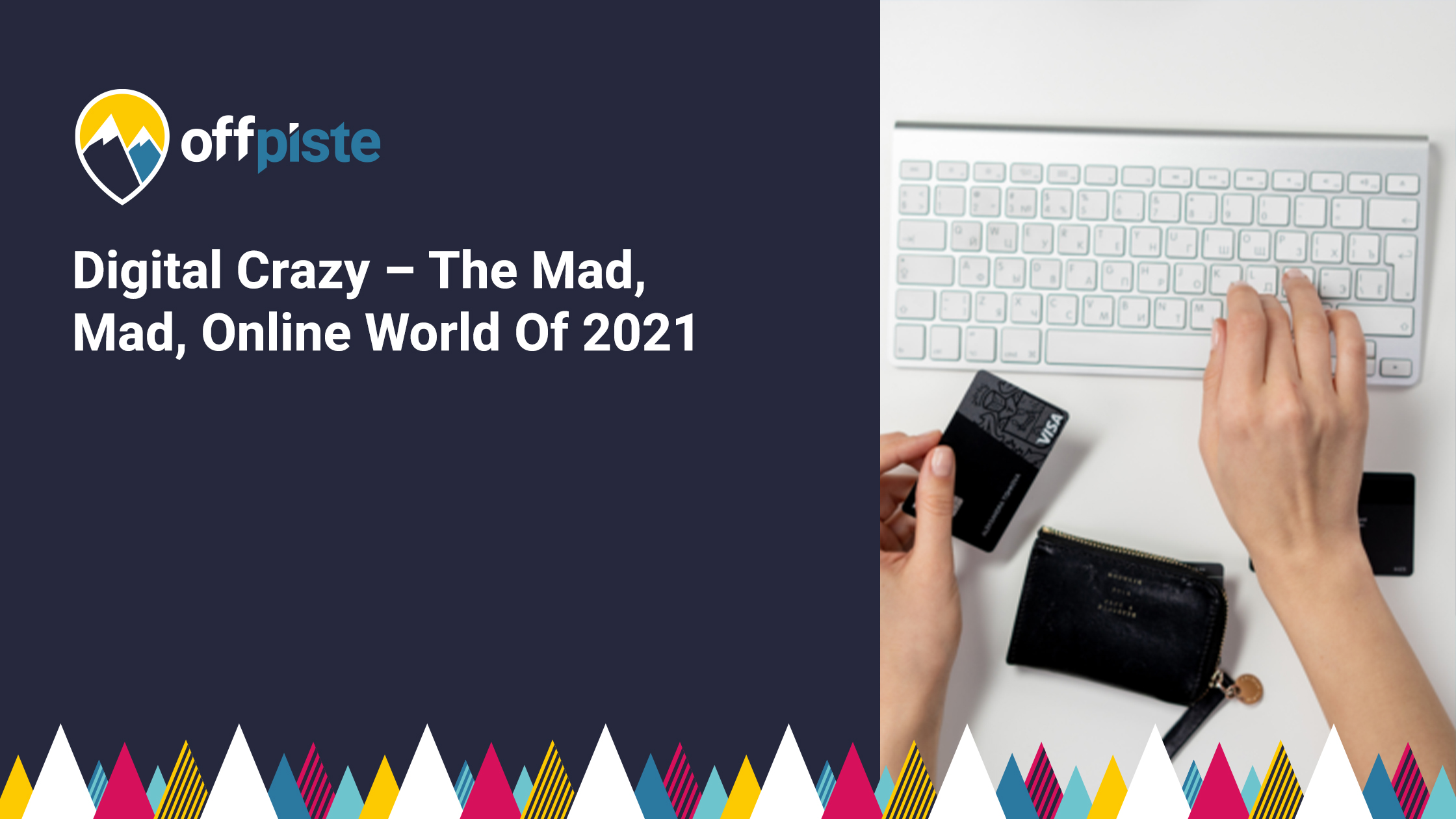In the bonkers world we have found ourselves in over the last 12 months, one thing we have all certainly made more use of is the internet. Indeed, with everyone being predominantly housebound, the ability to go online has been a bit of a godsend. It has been our escape route for socialising and entertainment, as well as the primary way in which we have interacted with businesses and shopped for products.
If you are into statistics, then the figures generated over the last year are more than a little interesting. They show a seismic shift in both consumer and business behaviour.
When it comes to the general public, there has been a massive upturn in all things ‘internet’. According to Ofcom, UK internet usage surged to its highest levels, with the average adult spending more than a quarter of their waking day online. The number of video calls doubled and for a third of people, online video streaming, Netflix, Prime, etc, overtook the amount of time spent on terrestrial TV. It’s not surprising that some of the most engaged-in social media conversations have been in response to people asking for box set recommendations (watch Schitt’s Creek, btw, it’s awesome!) What’s more, to overcome boredom and do something more creative, 40% of people have even started uploading their own videos – hence the rise of TikTok, et al.
The good news for businesses with an internet presence is that online shopping went through the roof last year. According to the ONS, Internet sales as a percentage of total retail sales spiked to unprecedented levels.

With little access to physical stores, retail therapy has come in the guise of cardboard packages. And with equally limited access to people, our daily jaunts to the front door to meet our new friends from DPD, Hermes and Amazon have become the highlight of our social calendar. We’ve lost count of the number of times our feet have been photographed astride a parcel in the open doorway!
Shopping behaviours are also changing in other ways too. Scammers have had a bit of a field day taking advantage of the lockdown and people are increasingly cautious about who they buy from. Not only are people making more use of review sites and asking for personal recommendations on social media; more people than ever are leaving reviews and giving recommendations. Businesses need to keep a close eye on their feedback and be transparent when there’s an issue.
2020 has also seen shoppers become more ethical. They are acutely aware of how their actions impact the environment and society and this makes them think twice about which brands to buy from. Today, they are looking for brands whose values match their own: they want companies that are sustainable, offer equal opportunities, treat employees well and which support common causes. What’s more, to many of them, this is more important than product or price. With a recent US survey showing that almost 9 out of 10 consumers have a more positive view of ethical businesses, supporting social or environmental issues has become a key area of competition, with brands going all out to promote their values and actions.
Doing so, however, is not without its challenges, especially when posting on social media. While sending the right message can generate lots of new followers and customers; the wrong message, or even a badly phrased comment, can result in a backlash. So too can ‘greenwashing’ – making a company look more sustainable than it actually is. Social media faux pas can be costly, not just to reputation but to the bottom line. With over half of the world’s population now having a social media account and active users spending an average of 2.4 hours a day flicking through the various channels, it’s a market where companies have to nurture positive relationships. Navigating the right path is essential if you want your PPC ads clicked on and your posts generating engagement.
Engagement, actually, is a good place to finish this post, because it’s the other key development we’ve noticed over the last year. Stuck at home with nothing but the same four walls, people are inclined to twiddle their smartphone thumbs in search of entertainment – and this means brands that post stimulating content are seeing an upsurge in engagement. Post can be fun, meaningful, helpful or intriguing, it doesn’t matter; if they catch the imagination of an audience desperate for a bit of light lockdown relief, you’re on to a winner.
And if you need help with that, or with any of your social media or PPC strategies, get in touch – we’re here to help.





